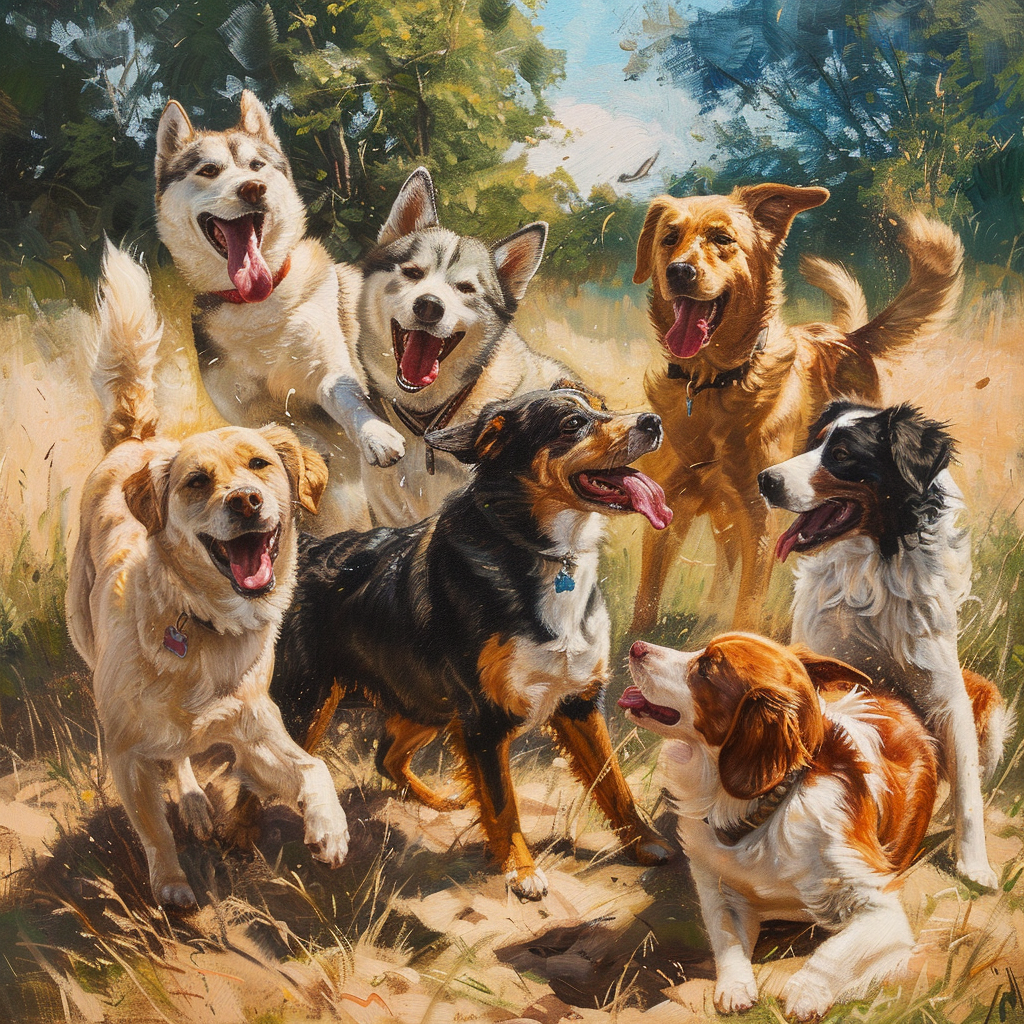Bringing a husky puppy into your life promises a unique blend of companionship and adventure. Known for their striking looks and vibrant character, these fluffy bundles of energy are descended from the resilient sled dogs used by the Chukchi people of Siberia.
They come from a lineage bred for stamina and strength, traits that are evident even in the playfulness of a husky pup.
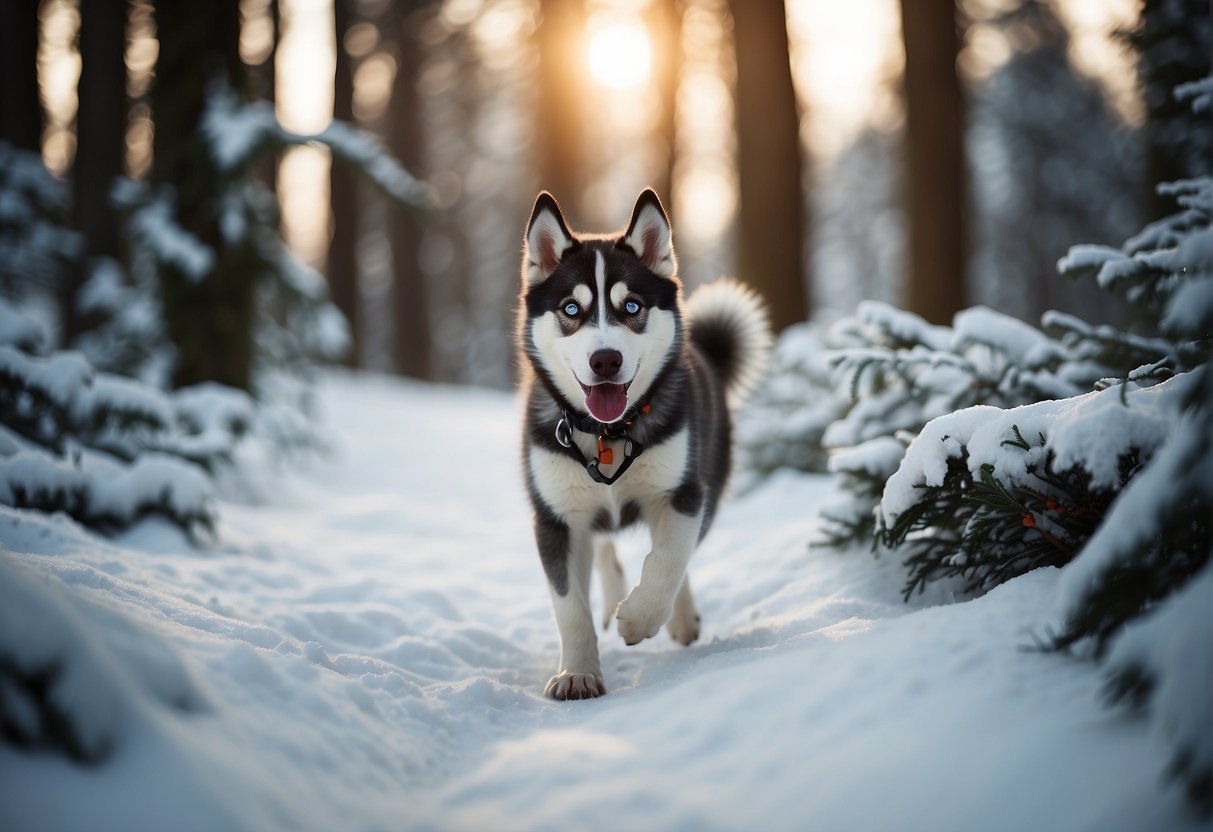
Your husky puppy will boast a dense, double coat, erect triangular ears, and the iconic wolf-like appearance that often captures the hearts of dog enthusiasts.
But beyond their physical allure, these dogs carry a spirit of camaraderie and tenacity, sculpted through their role alongside humans in harsh Arctic environments.
While they share a resemblance to the Alaskan Husky and Alaskan Malamute, Siberian Huskies are a distinct breed, celebrated for their endurance and friendly temperament.
Key Takeaways
- A Siberian Husky puppy inherits a legacy of endurance from its sled-pulling ancestors.
- Expect a friendly and energetic companion with a thick double coat and captivating eyes.
- Huskies need dedicated training, regular exercise, and proper care to thrive.
Husky History And Origin
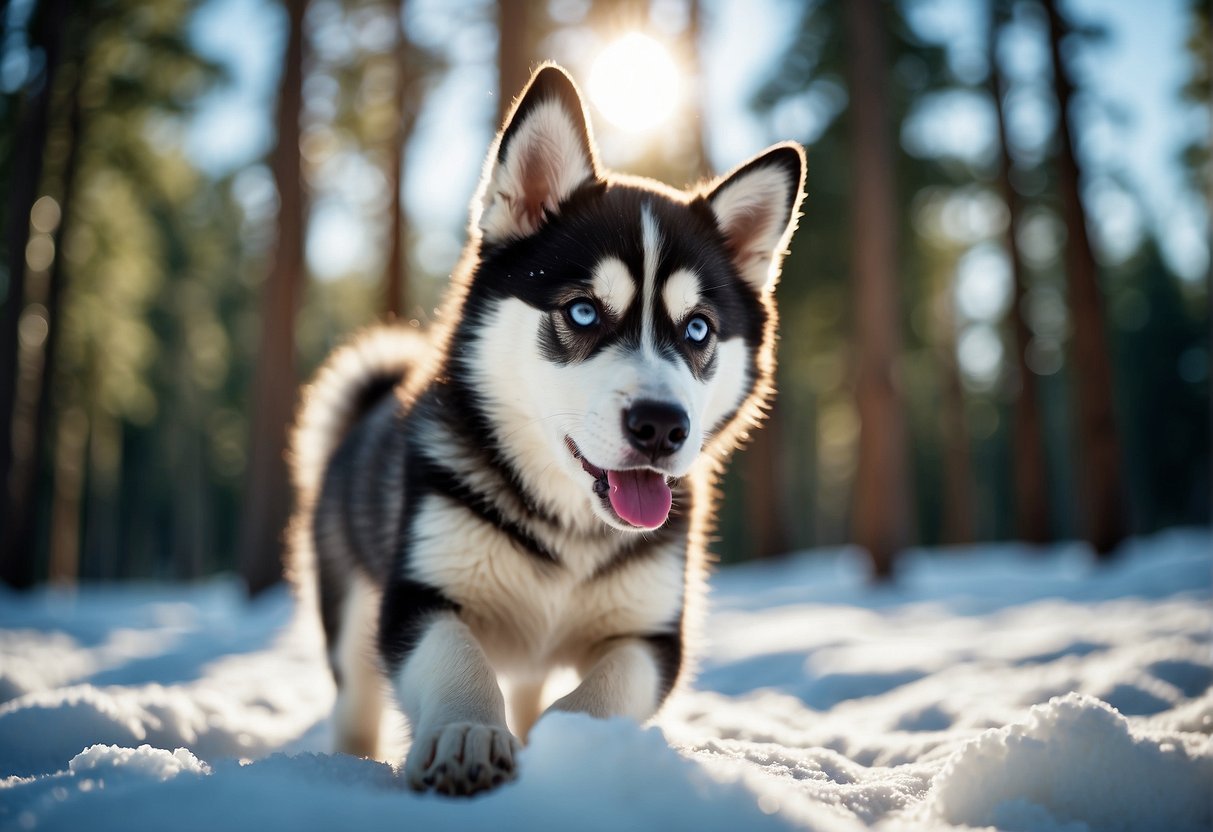
Ancestral Roots
The Siberian Husky traces its ancestry back to the frigid expanses of Siberia where the indigenous Chukchi people expertly bred them as sled dogs.
It’s incredible to think that your husky puppy shares its lineage with the valiant dogs that were pivotal for transportation and survival in these sub-zero climates! Read more about their Siberian roots.
Rise To Popularity
Your curious and mischievous husky comes from a line of canines that achieved legendary status when they were introduced to Alaska.
The introduction sparked a phenomenon with events like the famous 1925 serum run to Nome, where a husky named Balto became a hero. This magnificent breed’s popularity skyrocketed, and now you can even find a statue of Balto in Central Park!
Their history of perseverance and dedication has captured the hearts of many, including celebrities like actor Ben Stiller, who’s a known admirer of the breed. Discover the journey to popularity.
Physical Characteristics
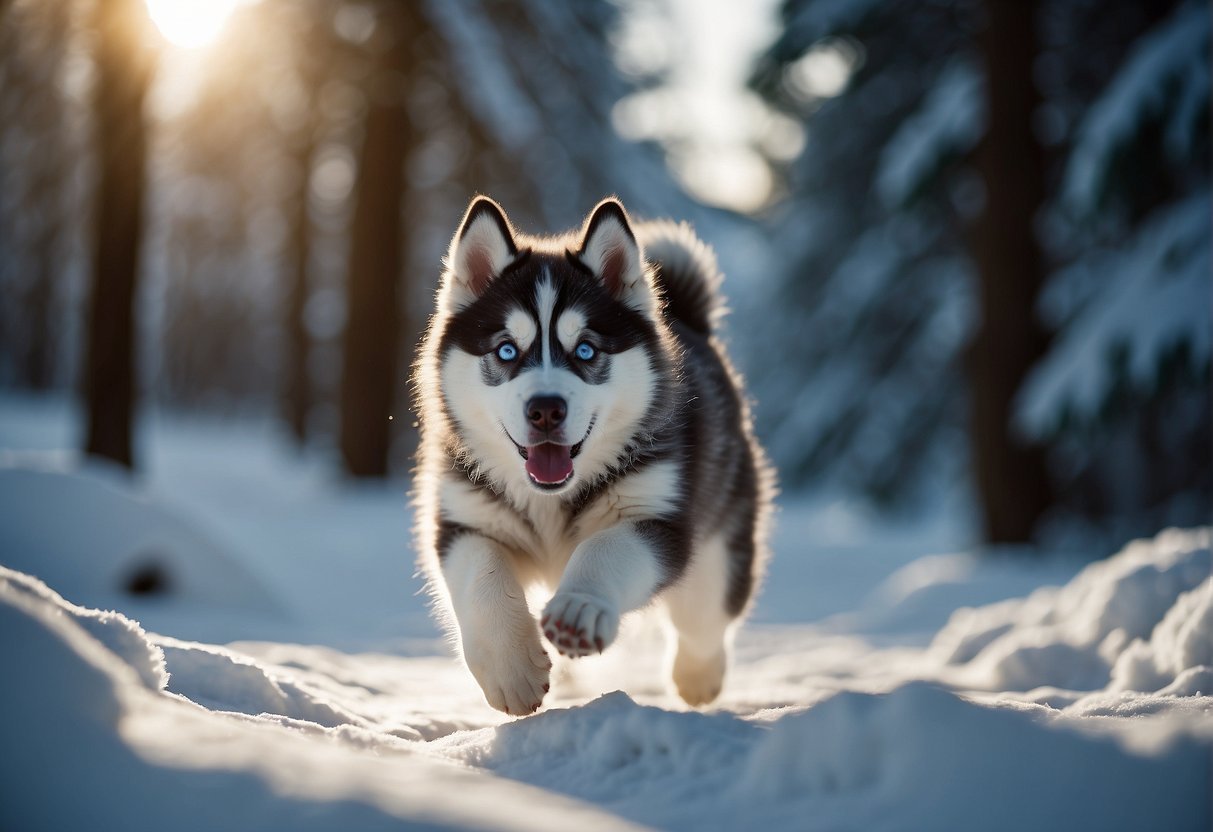
Get ready to be charmed by the stunning physical characteristics of your Husky puppy!
Coat Description
Your Husky’s coat is double-layered, with a dense undercoat that provides insulation and an outer coat that repels water.
You’ll be fascinated to find that the coat comes in a variety of colors, from black to pure white, and many shades in between.
Expect a fair amount of shedding; during the shedding season, you’ll discover their inner fluff that requires some coat care to keep your Husky looking dapper and feeling comfortable.
Distinguishing Features
Your pup’s ears are medium-sized, triangular, and stand, giving them an alert and intelligent expression.
One of the most captivating traits of your Husky is their eyes—they can be blue, brown, or even one of each, a condition known as heterochromia.
These bright eyes are not just beautiful but expressive, reflecting their lively spirit.
While mostly robust, Huskies may be predisposed to conditions like corneal dystrophy, so regular check-ups are crucial. Lastly, don’t forget their teeth; regular dental care is key to maintaining your Husky’s overall health.
Behavior And Temperament
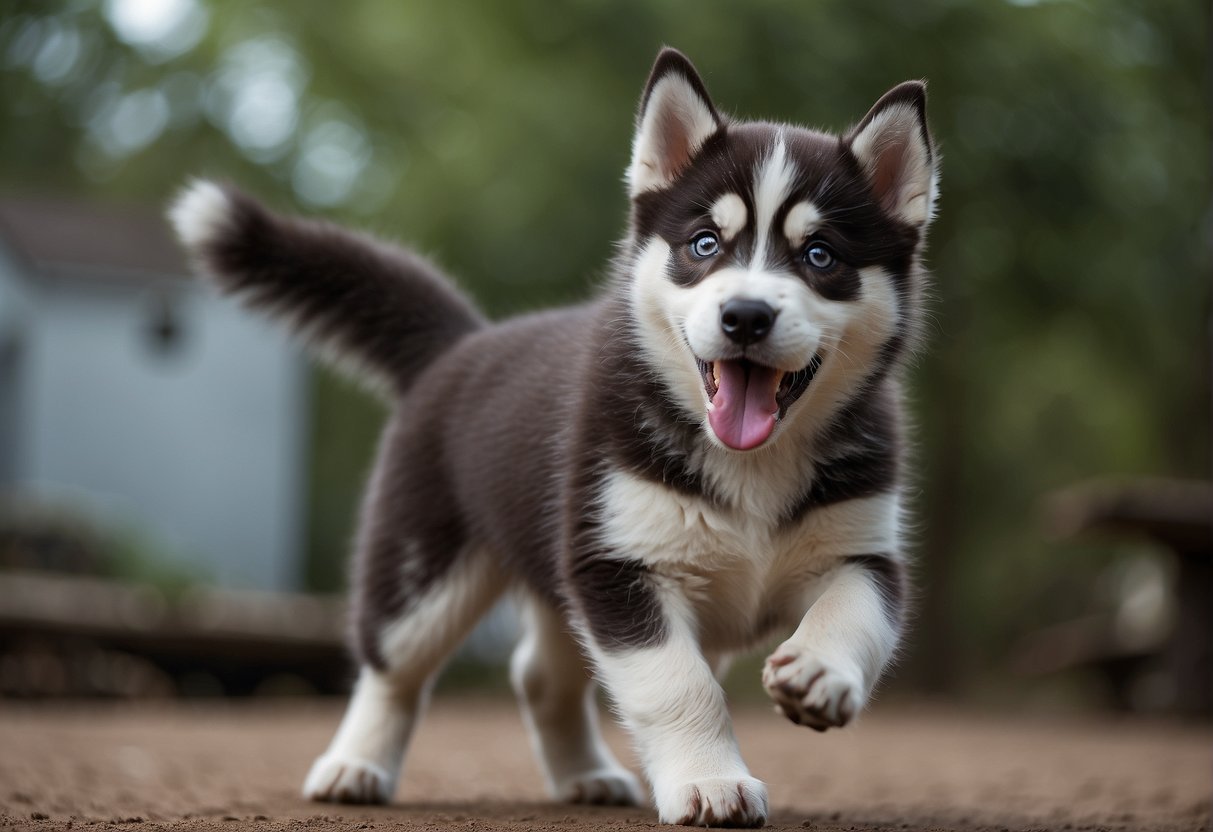
Get ready to discover the vivacious personality and social traits that make the Siberian Husky a unique and captivating breed. These pups are known for their mix of warmth and independence, with a dash of mischievousness to keep you on your toes.
Siberian Husky Personality
Your Husky puppy is a bundle of energy, always ready for fun and adventure.
Siberian Huskies carry a temperament that’s lively and fun-loving.
I Heart Dog says the following on Husky Temperament:
“Energetic and Adventurous: Huskies are bursting with energy, requiring ample exercise and mental stimulation. They thrive in active households where they can expend their energy through play, runs, and other activities. The adventurous spirit of Huskies makes them excellent companions for outdoor enthusiasts.
Vocal and Expressive: One unmistakable trait of Huskies is their vocalization. They are known for howling, which can be charming but also challenging for owners, especially those living in closely-knit communities or apartments.”
Don’t be surprised if your furry friend showcases a strong prey drive, as it’s in their nature to chase after small animals.
But there’s more – your little pal will likely be quite the vocalist with a tendency to howl. This echo of their wolf ancestors is endearing but can be a point to consider if you live close to others who may not share your enthusiasm.
- Independent: While Huskies love company, they also have an independent streak.
- Stubbornness: Be prepared for a bit of a challenge; their stubbornness can make training a creative endeavor.
- Chewing: A Husky’s love to chew is strong – keeping them stocked with toys can help protect your belongings.
- Affectionate: Despite their bold nature, they can also be quite cuddly and affectionate with their favorite humans.
Interaction With Others
Huskies are naturally friendly and social, thus they enjoy the company of both humans and other dogs.
If you have kids or other pets, your Husky will likely become an integral part of your lively household dynamic.
But keep in mind, their friendliness usually means they don’t make the most protective watchdogs. They’re more about play than patrol.
- Playful with Children: Huskies usually love playing with kids, but supervision is crucial, especially with younger ones.
- Dog-Friendly: They typically get along well with other dogs, but introductions should be done carefully to ensure a good match.
- Socialization: Start socialization early to help your Husky develop good manners around people and other pets.
Training And Socialization
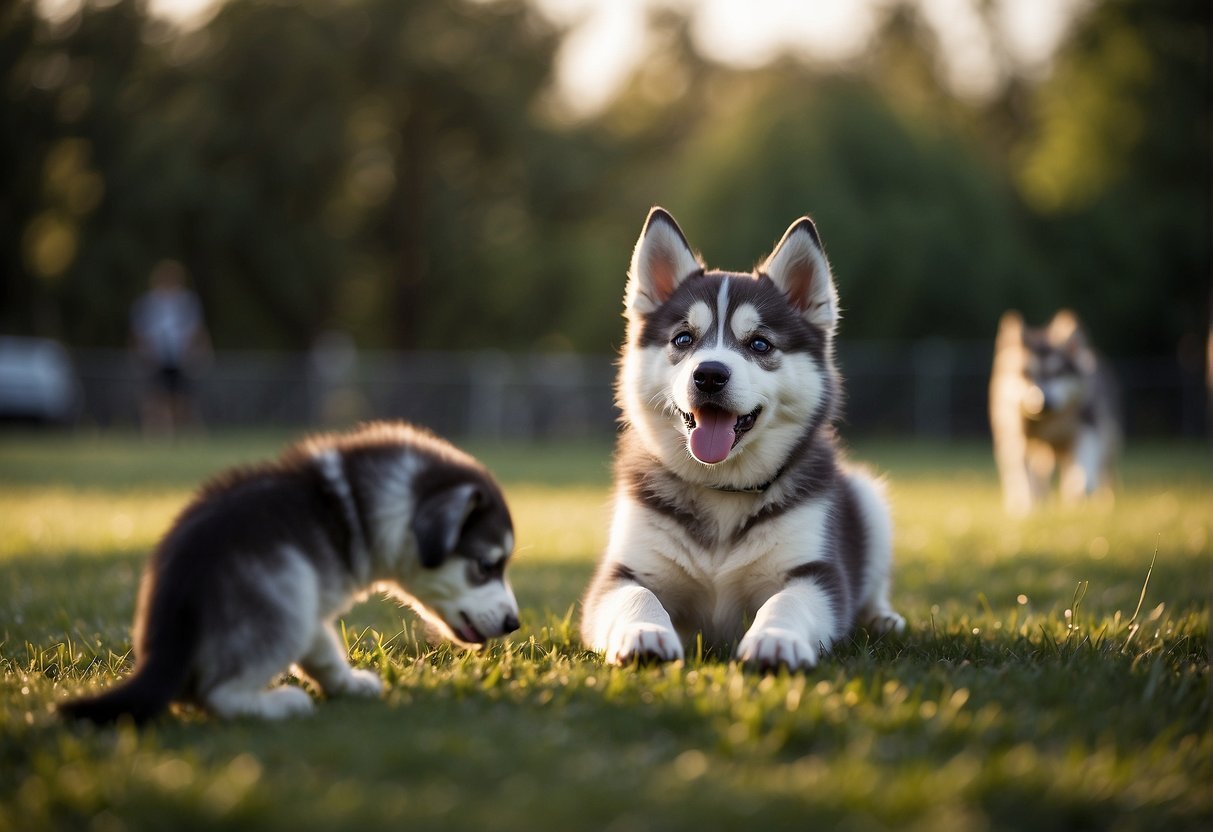
Thriving on structure and consistency, your Husky puppy will greatly benefit from obedience training early on.
Siberian Huskies are renowned for their intelligence, but their independent nature often overshadows their ability to follow commands. This breed possesses a sharp, curious mind that thrives on challenge and engagement.
Huskies excel in problem-solving and can quickly learn commands, yet they require a compelling reason to obey due to their independent streak. To harness their potential, training must be made engaging and rewarding, highlighting their natural intelligence while respecting their desire for autonomy.
They are perfect candidates for Off Leash K9 Training, as this blends their desire to learn with their need for independence. With the right approach, Siberian Huskies can become obedient companions, capable of mastering complex tasks and commands.
Socializing Your Husky
Early socialization sets the groundwork for your Husky’s interaction with the world.
Expose your puppy to different people, animals, and environments to foster adaptability and sociability.
Schedule playdates, enroll them in puppy classes, and create varied experiences to help your puppy grow into a well-balanced adult.
It’s exhilarating to watch your Husky blossom into a sociable and confident dog through careful and loving socialization.
- Socialization Activities:
- Puppy playdates
- Visits to diverse environments (dog parks, walking trails…)
- Positive interactions with a variety of people
Grooming
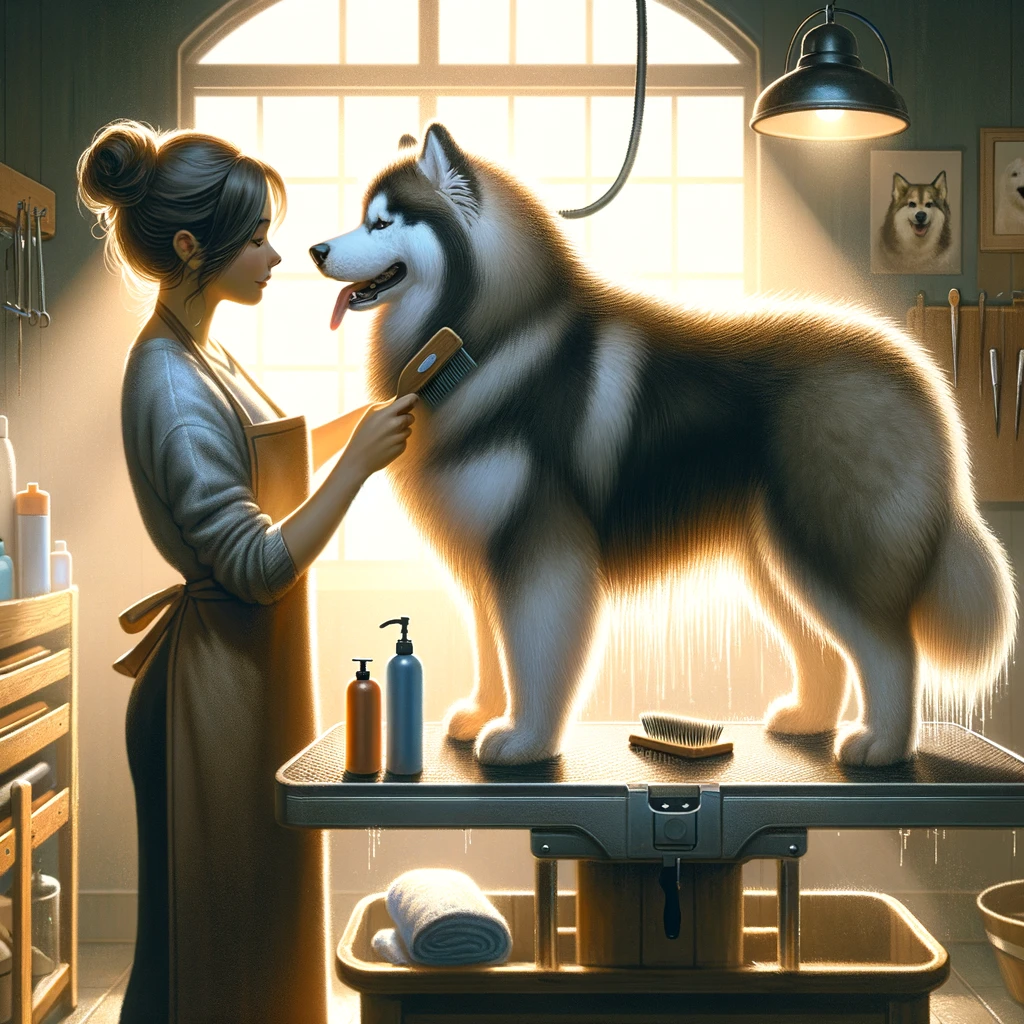
Caring for your Husky puppy involves consistent grooming and ensuring they get plenty of exercise to match their high energy levels. A well-maintained Husky is a happy companion, ready for any adventure you have in mind!
Grooming Needs
Your Husky’s thick coat is a defining feature, so regular grooming is essential.
You’ll want to brush their fur at least once a week, though during shedding seasons this will rise to daily brushing to remove loose fur and prevent matting.
Care for their coat also involves the occasional bath, although not too often, as it can strip essential oils from their skin.
Don’t forget about their nails—trimming them regularly is crucial to prevent discomfort when walking.
- Brushing frequency: Weekly (Daily during shedding seasons)
- Bathing: Occasionally
- Nail Trimming: As needed
Health And Wellness
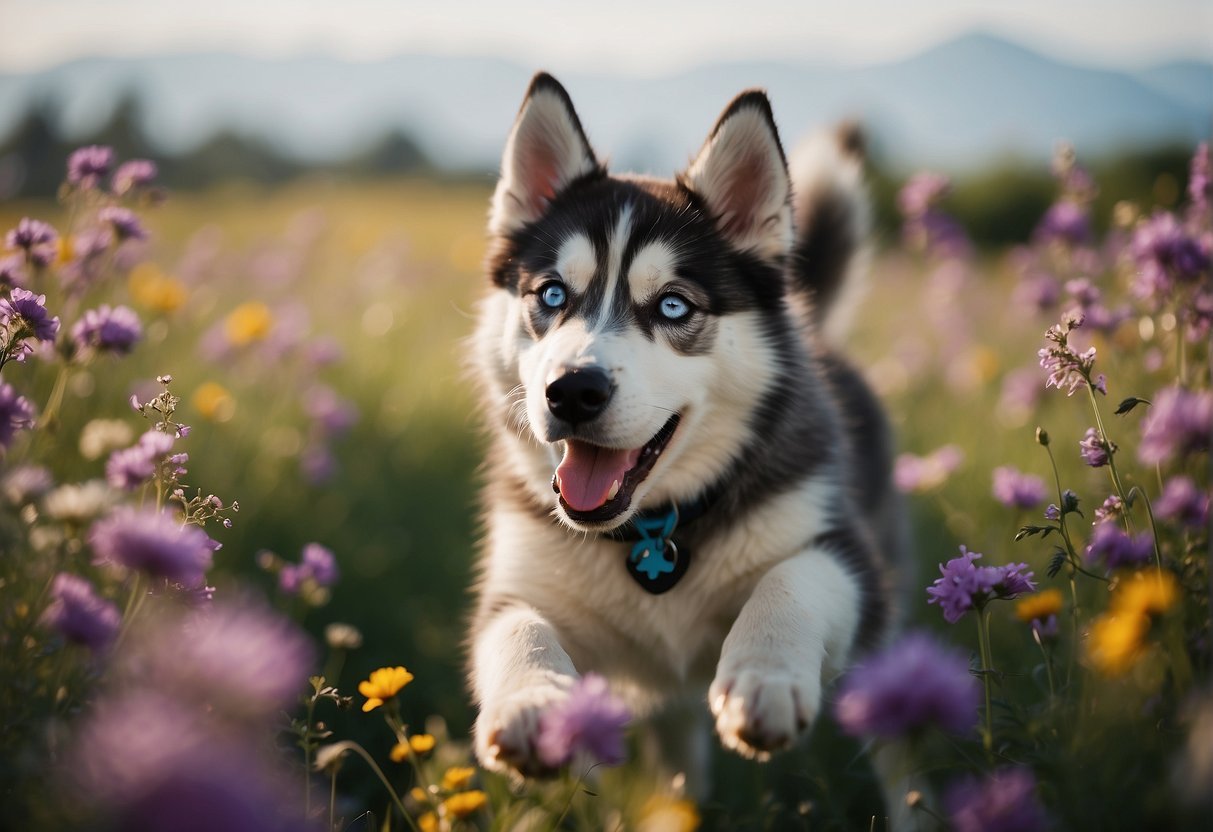
Common Health Concerns
Your husky might face specific health issues. For instance, hip dysplasia (CHD) affects the hip joint, making movement painful or difficult. Meanwhile, Progressive Retinal Atrophy (PRA) can lead to loss of vision.
Be vigilant for signs of cataracts. They can cloud your husky’s eyes. You should also watch out for corneal dystrophy, which could affect the transparency of the cornea. Both conditions require attention to prevent progression. Regular vet checks are your ally in catching these issues early:
- CHD: Look for signs like difficulty rising or lameness.
- PRA: Watch for night blindness or changes in eye appearance.
- Cataracts: If their eyes look cloudy or they’re bumping into things, it’s vet time.
- Corneal Dystrophy: If you notice unusual eye appearances or signs of eye discomfort, consult your vet.
Exercise Requirements
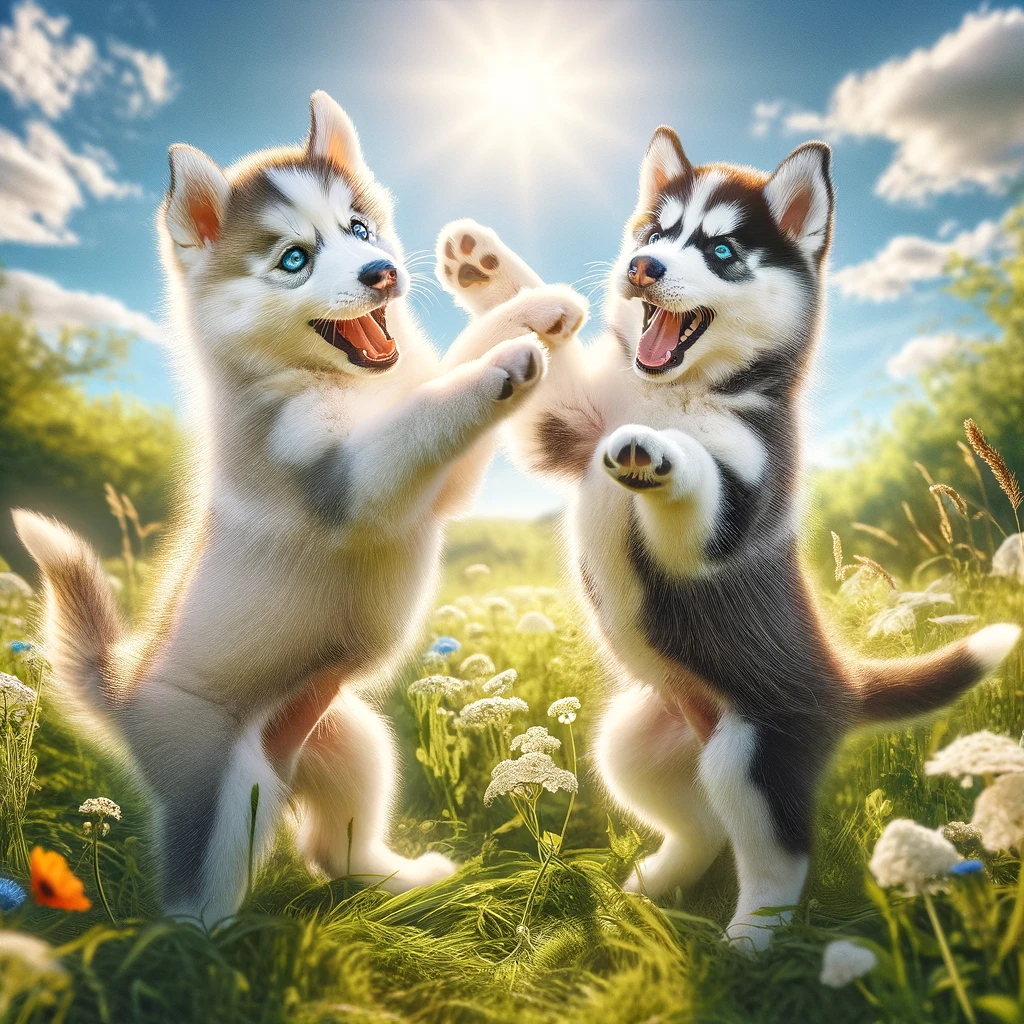
Huskies have a natural endurance and energy level that requires daily exercise to keep them fit and content.
Aim for at least an hour of physical activity each day, including running or interactive play to provide mental stimulation.
Activities that tap into their sled dog heritage, like pulling sports, can provide excellent outlets for their energy. They also need frequent attention to remain closely bonded with their family.
Lifespan And Aging
With proper care, your husky’s life span can range from 12 to 15 years. As they enter their golden years, your once boundless ball of fur will slow down a bit. To support graceful aging:
- Maintain regular exercise but adjust the intensity as needed.
- Keep up with coat care, because a healthy coat means a healthy pup.
- Proactive care is key! Investing in a nutritious diet will also help address common concerns.
Adoption And Breeding
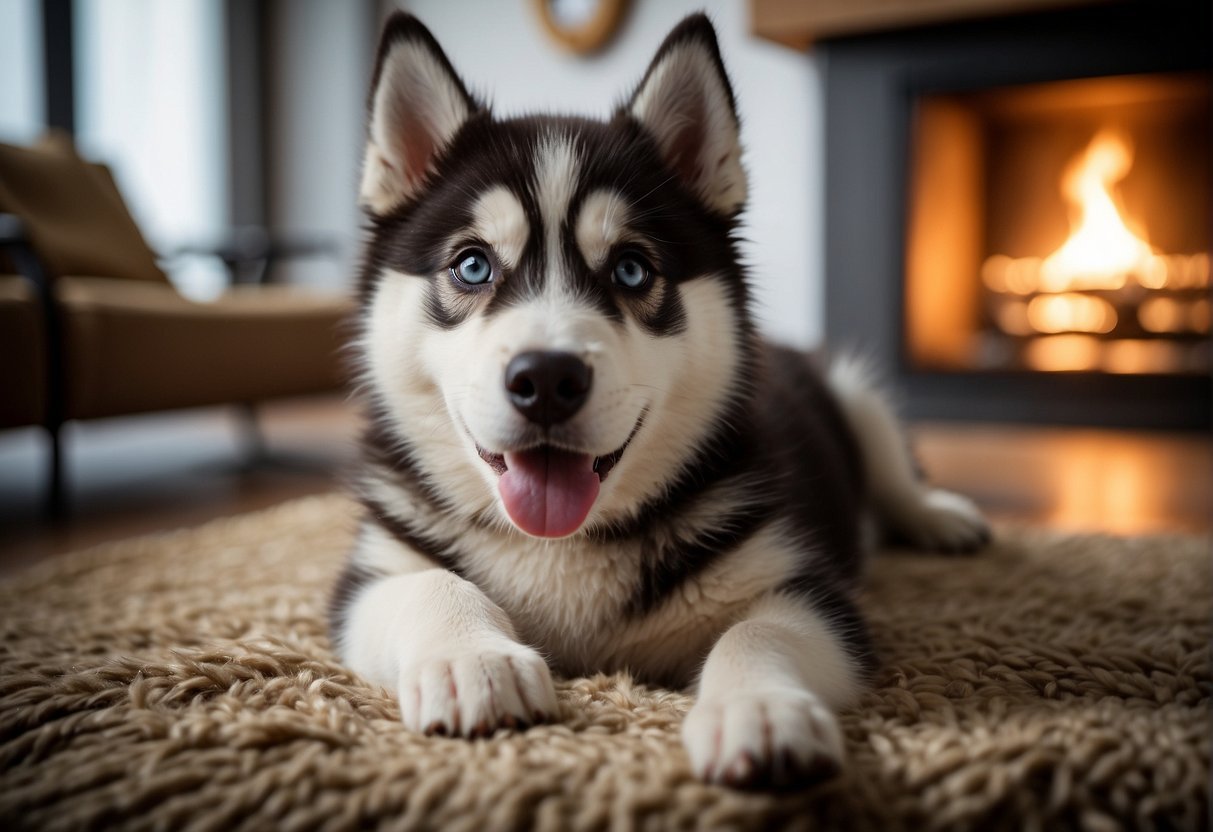
Choosing the ideal husky puppy, whether through adoption or from a breeder, can be thrilling! It’s a journey that requires careful consideration to ensure a perfect match with these magnificent northern breed dogs.
Choosing A Breeder

When you’re in the market for a Husky puppy from a breeder, prioritize those affiliated with the American Kennel Club (AKC). An AKC-certified breeder not only adheres to breed standards but also focuses on the health and well-being of the dogs.
Ensure they perform health screenings and are transparent about the puppy’s medical history.
It’s essential that they welcome you to visit and show where the puppies are raised. A few options are Karnovanda Kennels and Husker Du Kennels, but there are many more!
Rescue And Adoption
Adopting a Husky can be a life-changing experience! Rescue centers, like Husky House, aim to match you with a furry companion that aligns with your lifestyle.
Free Spirit Siberian Rescue is another organization that adopt and rescue huskies, trying to reduce the number of homeless puppers.
Fun Facts About Huskies

- Origins: Siberian Huskies trace their ancestry back to the northeastern Siberia. The Chukchi people bred them for sledding and companionship.
- Sledding Heritage: Your husky puppy comes from a lineage of sled dogs that were crucial for transportation in arctic conditions.
- Eyes that Mesmerize: Often, Huskies are born with strikingly beautiful blue eyes, adding to their unique and captivating look.
- Escape Artists: Huskies are known for their Houdini-like abilities. They can be the ultimate escape artists, so keep your yard secure to prevent any adventurous escapades!
- Climate Pros: They thrive in cold weather. Their double coat provides insulation against harsh winter temperatures.
| Country Popularity | Why They’re Loved |
|---|---|
| Canada & UK | Huskies fit well into family life with their friendly and playful demeanor. |
| Russia | Their origins make them a natural fit for the climate, and they’re cherished for their historical significance and abilities. |
There you have it! We’re sure you will love these cute and unique pups as much as we do.


